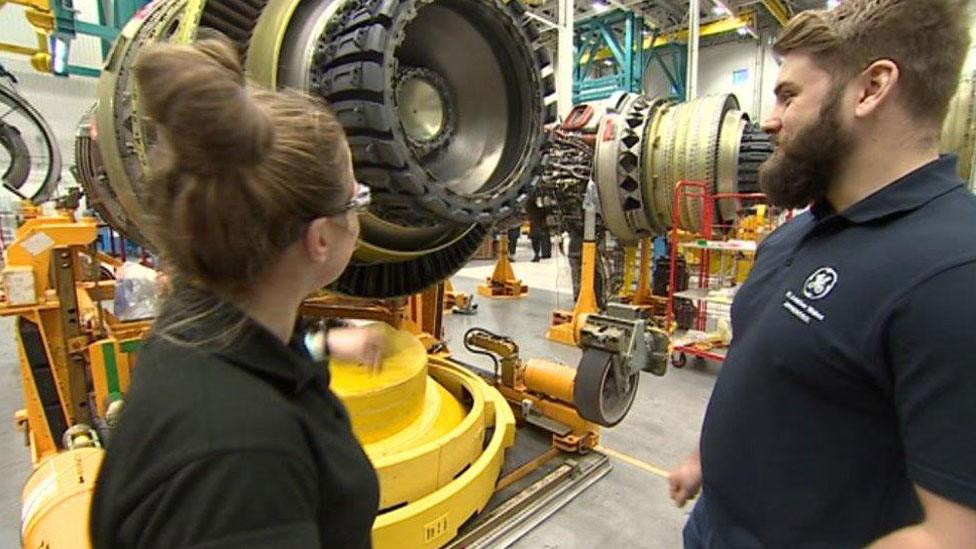Ministers talk to teaching unions about cash for training
- Published
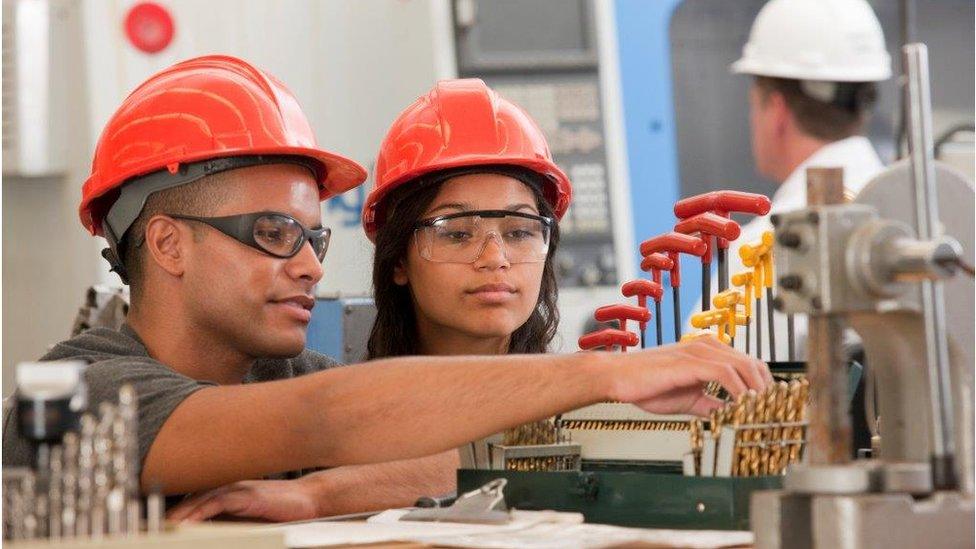
It has been estimated Wales' public sector as a whole contributed £30m to the levy in 2017-18
Negotiations are taking place with teaching unions on how they can access cash to train staff, the Welsh Government has told BBC Wales.
It comes after the headteachers union said it was a "disgrace" £4m had gone from school budgets in Wales to pay the UK Government's apprenticeship levy.
Welsh minister Eluned Morgan confirmed the talks but called the tax "unfair" on councils and schools in Wales.
UK ministers said Wales shared levy proceeds and decided how to spend them.
But ministers in Cardiff said the money was "largely offset" by other cuts.
Employers with wage bills bigger than £3m contribute 0.5% of their payroll to the apprenticeship levy, a policy aimed at ensuring larger firms contribute to the costs of training.
Council-run schools are affected even if their own wage bill is lower, as the calculation is made at a local-authority level.
All 22 Welsh councils have wage bills higher than £3m.
Some councils take all the money from central budgets, but 13 have told the Wales Live programme they took a total of £3.8m directly from schools budgets last year.
In total, the tax cost Welsh councils more than £13m in 2017-18.
It has been estimated the Welsh public sector as a whole contributed £30m.
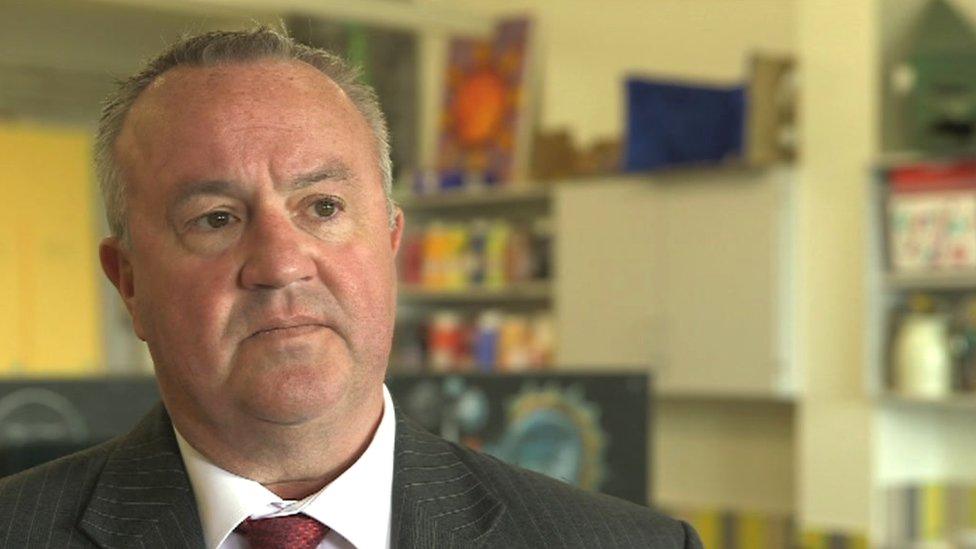
Head teacher Chris Britten: "It makes me really angry, actually"
In England, employers who pay in receive vouchers which can be used to fund apprenticeships in return.
But for Wales a proportion of the money raised is transferred from the Treasury to the Welsh Government, which decides how it is spent.
The Welsh Government already has an apprenticeship scheme so the money paid into the levy by schools and other employers in Wales does not end up directly funding apprenticeships here.
As a result of the levy, Wales was given £128m in 2017-18, and that will rise to £133m for 2018-19 and £138m for 2019-20.
Chris Britten, headteacher of Ysgol y Deri in Penarth, Vale of Glamorgan, told the programme the levy was costing his school £25,000 a year.
"The money's just left us, it's left Wales and it's gone over to London and that seems to be an end of it," he said.
"It makes me really angry actually."
Rob Williams from the National Association of Headteachers Cymru said schools should be exempt from the tax.
"It's not right," he said.
"It's a disgrace really that Wales is losing that money from schools at a time when we need it most."
Rob Williams of NAHT Cymru said schools were losing the money when they needed it most
A UK Government spokeswoman said it was committed to making the system work for employers across the UK and it had agreed a funding formula with ministers in Wales.
"As skills policy is a devolved area the devolved administrations will continue to have complete flexibility over how to support businesses through training and apprenticeships."
A Welsh Local Government Association spokesman said making all council-funded schools liable for the levy was "believed to have a disproportionate impact on Wales".
"The likes of free schools and academies, which are few in number in Wales, are regarded as being independent and are unlikely to reach the £3.0m threshold to qualify for the tax," he said.
"This means that even small rural schools with a very small pay bill has to pay the levy.
"This would be replicated many times as few individual schools would have a pay bill in excess of £3.0m in Wales."
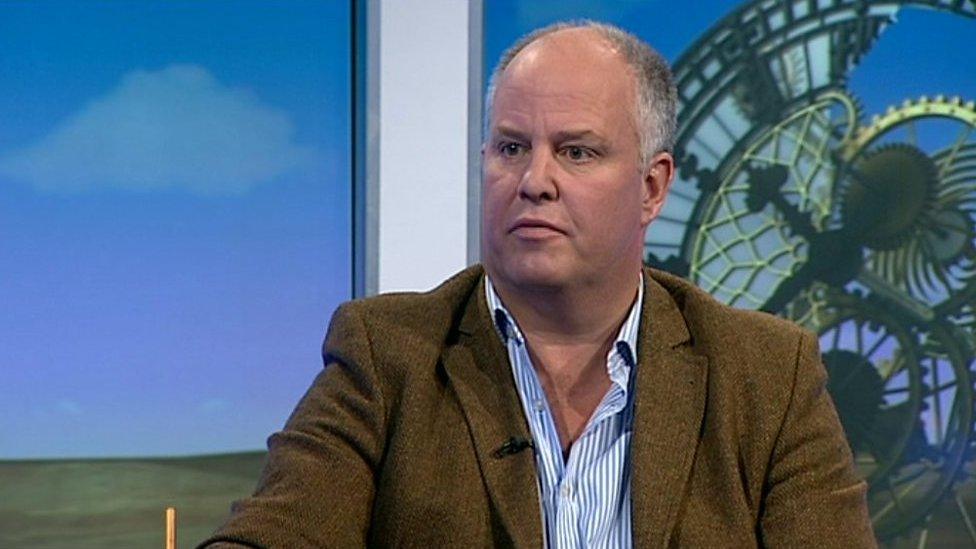
Andrew RT Davies says £17m has "leaked out of the system"
Welsh lifelong learning minister Eluned Morgan agreed the apprenticeship levy was "an unfair tax, in particular on local authorities and schools in Wales".
"We're in negotiations with some of the teachers unions and the headteachers union about how they can access training to help develop staff within their schools," she said.
But Welsh Conservative leader Andrew RT Davies accused the Welsh Government of being the "villain of the piece".
He said: "They've had £128m [from the levy] and rising to £133m this year. They're only spending £111m on training and apprenticeships here in Wales.
"Even on the most simplest of maths you can see that £17m has leaked out of the system and that money has leaked out of the system because Welsh Labour ministers have not passed that on to schools, on to police and other major employers here in Wales."

Analysis by Paul Martin, BBC Wales Live reporter
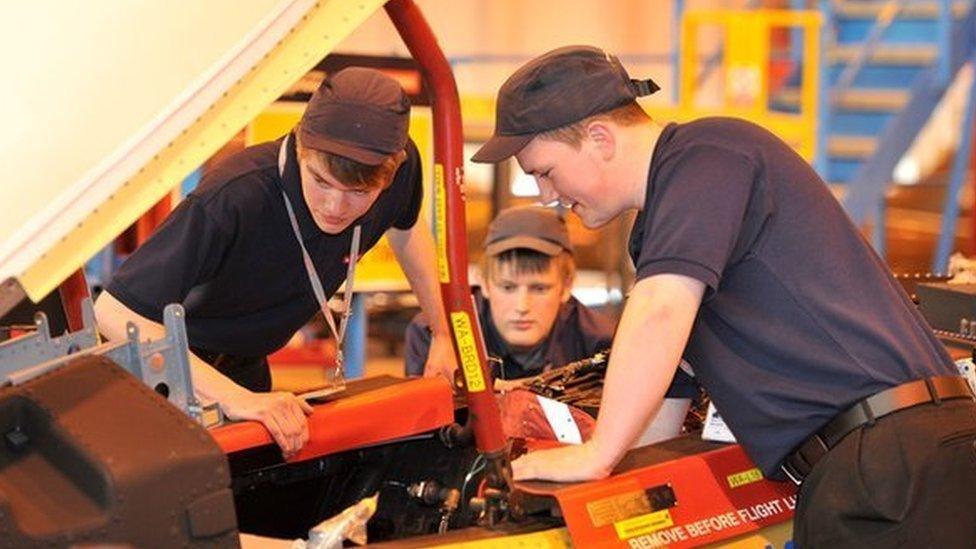
When, as chancellor in 2015, George Osborne announced his plan to make "large companies" contribute to the cost of training, few would have immediately thought the apprenticeship levy would affect schools and other public services.
But if teachers and parents in Wales are unhappy about the impact on schools, they could be forgiven for wondering who to blame.
The UK Government for bringing in the tax?
The Welsh Government for not using the money it gets from the tax to refund schools?
Or the local councils who've chosen to use school budgets to partially fund what they owe?
- Published13 February 2018
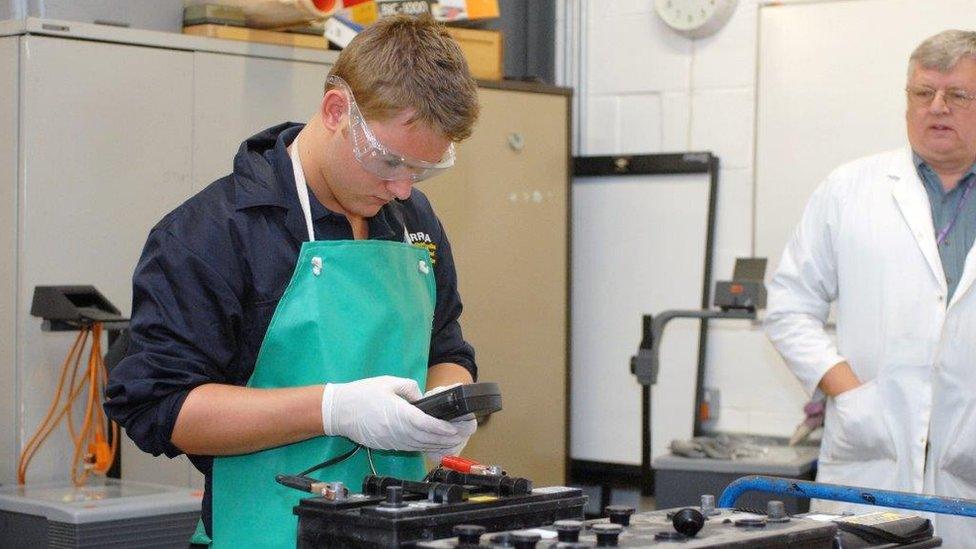
- Published25 January 2018
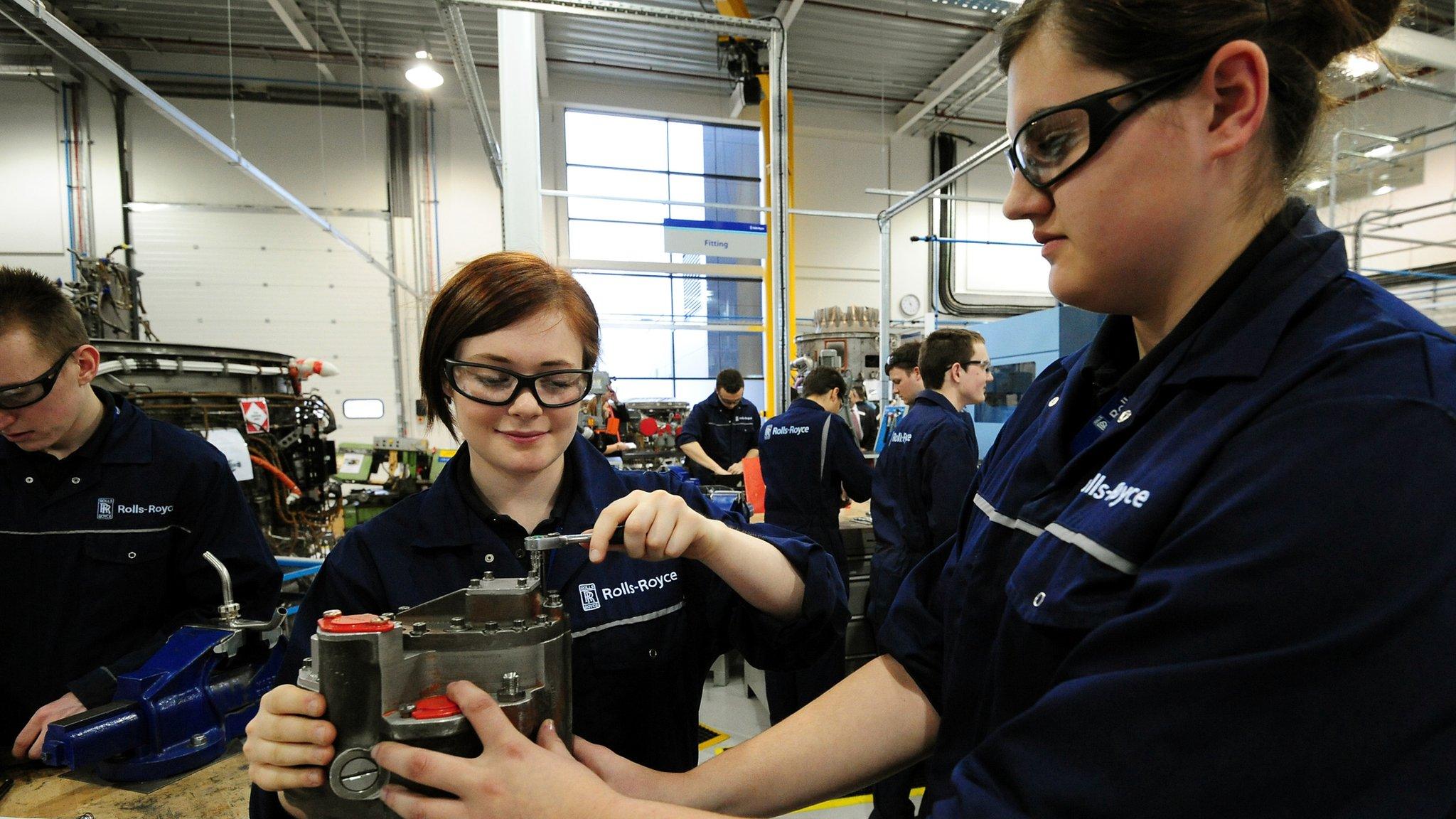
- Published29 March 2017
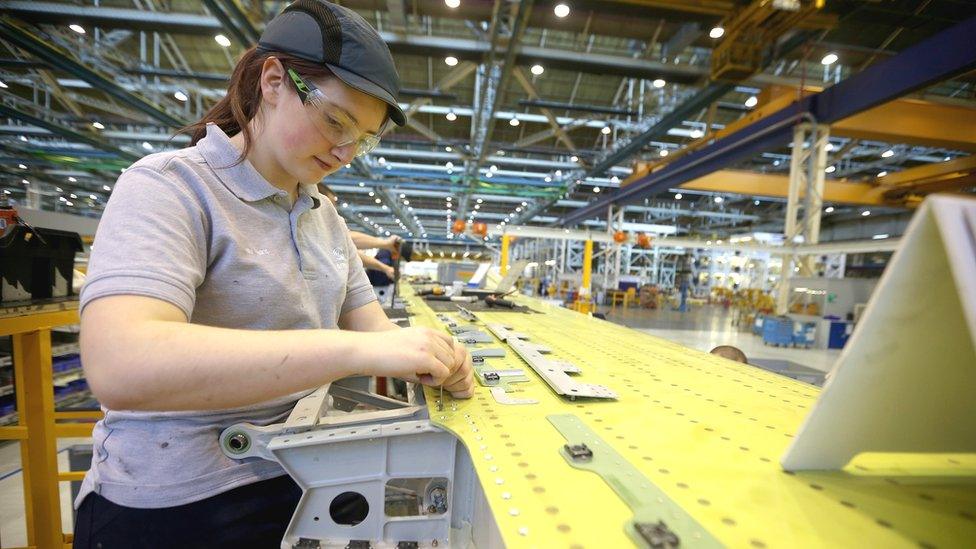
- Published7 February 2017
